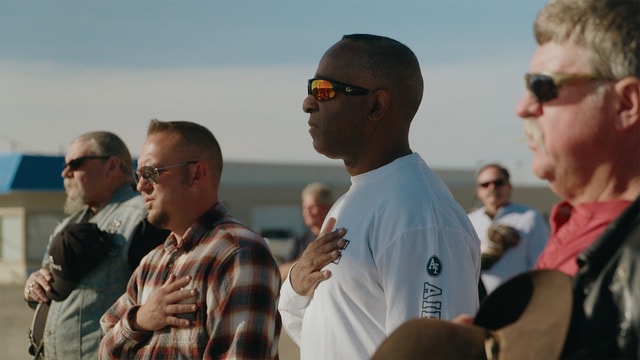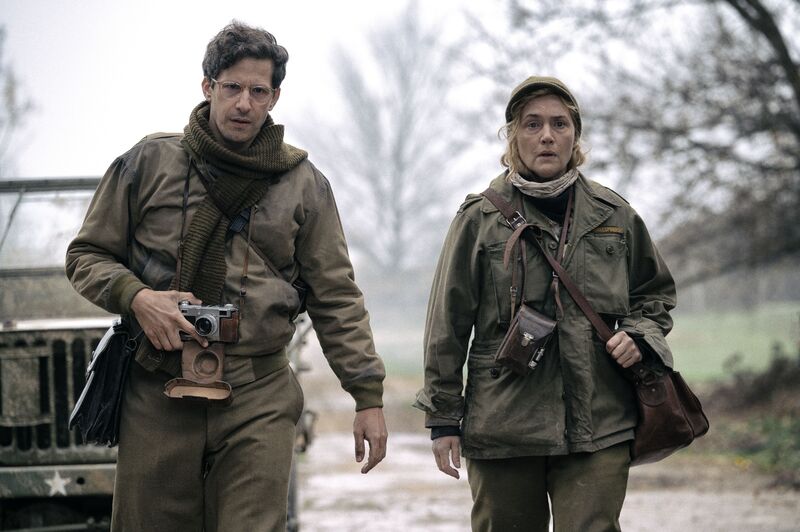
Electoral College Exposed
MOVIE REVIEW
One Person, One Vote?
–
Genre: Documentary
Year Released: 2024
Runtime: 1h 23m
Director(s): Maximina Juson
Where to Watch: The film debuts on PBS’s INDEPENDENT LENS on September 30, 2024 (check local listings) and will be available to stream on the PBS App
RAVING REVIEW: You won’t want to miss PBS’s INDEPENDENT LENS this September 30, as viewers are invited to the premiere of ONE PERSON, ONE VOTE?, a documentary that navigates the intricate ins and outs of the Electoral College. Directed by Maximina Juson and produced in collaboration with Daresha Kyi and Christie Herring, this film presents a sweeping exploration of a system that has underpinned and provoked debates about American democracy for almost as long as it has been part of the system.
ONE PERSON, ONE VOTE? delves into the Electoral College's historical and current issues. It goes beyond the standard educational fare by integrating the system's origins—particularly its roots in slavery—with its enduring impact on today’s political landscape. The narrative is enriched by the voices of scholars like Dr. Paul Finkelman and Dr. Carol Anderson and political figures such as Derrick Wilburn and Polly Baca, providing a robust dialogue that captures the multifaceted nature of American politics.
The documentary breaks from mere exposition by infusing elements of (unintentional) humor, notably through Kit Maclean’s portrayal as an elector for Ye (Kanye West.) This approach helps to ensure the documentary maintains a lighter pace and tone, making the dense and often sobering subject matter more accessible and engaging for a broad audience.
The documentary ONE PERSON, ONE VOTE? taps into a crucial critique of the Electoral College, highlighting how this system effectively stifles the political diversity that might otherwise flourish in American presidential elections. Central to this critique is the "winner-takes-all" methodology employed by most states, where the candidate who secures the majority of the popular vote in a state claims all its electoral votes. This method not only marginalizes smaller political parties but also discourages voter turnout by promoting a sense of futility among those supporting third-party or independent candidates. Until we can get rid of the Electoral College, a presidential vote for a third party is throwing away your vote and often helps the more dangerous of the two candidates.
By concentrating electoral power so heavily, the Electoral College discourages an accurate multiparty system, where diverse viewpoints could compete on a more level playing field. Smaller parties would better influence policy and national discourse in a more proportionally representative system. Instead, the current setup perpetuates a two-party dominance, leaving many Americans feeling disconnected and powerless, as their preferred candidates often stand little chance of winning electoral college support. This aspect of the Electoral College reveals a stark contradiction: in a democracy that values freedom of choice, the electoral system limits the practical expression of that choice.
Further enriching its narrative, ONE PERSON, ONE VOTE? steps into the ongoing debates and potential reforms of the Electoral College, painting these not merely as academic discussions but as active and dynamic areas ripe for change. This angle emphasizes that the evolution of this political mechanism is driven by ongoing national discourse, illustrating that its future is still being written. It shines a light on Lauren Boebert and her actions to help halt the voices of the constituents she represents.
Rather than directing viewers to a particular stance, the film opens up a river of information, allowing for a panoramic understanding of the Electoral College and empowering the audience to form educated opinions. This approach transforms ONE PERSON, ONE VOTE? from a simple documentary into a vital civic instrument as America edges closer to another election period.
ONE PERSON, ONE VOTE? offers more than just a civics lesson; it’s an engaging, thought-provoking film that invites viewers to question and understand one of the most pivotal yet contentious elements of American electoral politics. After its debut, the film will also be available on the PBS App, broadening its impact and fostering discussions that could influence the future of U.S. democracy.
Please visit https://linktr.ee/overlyhonestr for more reviews.
You can follow me on Letterboxd, Instagram, Twitter, and YouTube. My social media accounts can also be found on most platforms by searching Overly Honest Reviews.
I’m always happy to hear from my readers; please say hi or send me any questions about movies.
[photo courtesy of INDEPENDENT LENS, TVS, PBS, HUMOVIES]
DISCLAIMER:
At Overly Honest Movie Reviews, we value honesty and transparency. Occasionally, we receive free items for review, including DVDs, Blu-rays, CDs, Vinyl, Books, etc. We assure you that these arrangements do not influence our reviews, as we are committed to providing unbiased and sincere evaluations. We aim to help you make informed entertainment choices, regardless of our relationship with distributors or producers.
Amazon Affiliate Links:
Additionally, this site contains Amazon affiliate links. If you purchase through these links, we may receive a commission. This affiliate arrangement does not affect our commitment to honest reviews and helps support our site. We appreciate your trust and support in navigating these links.



Average Rating